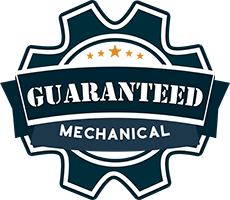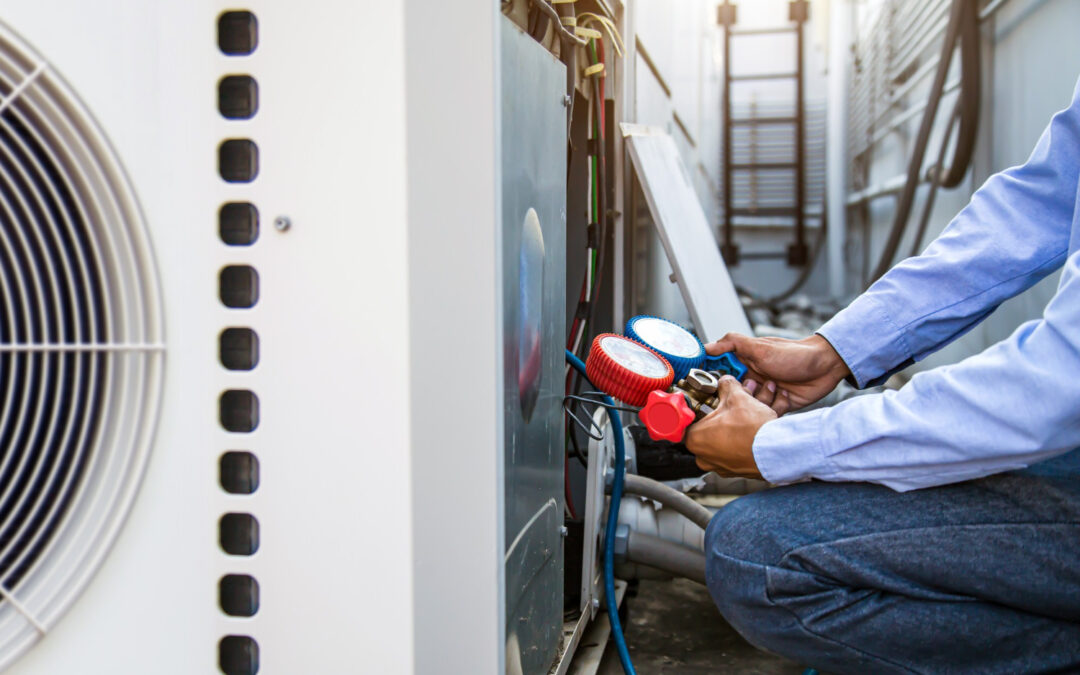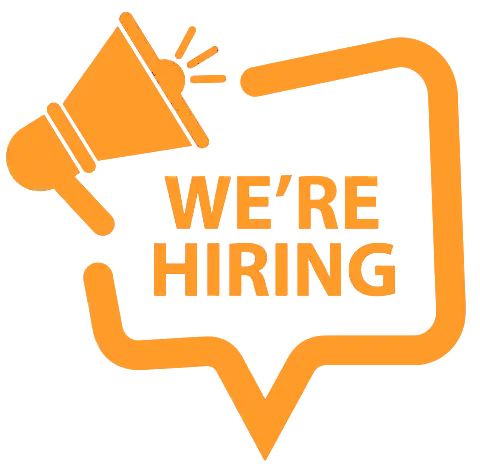Commercial heat pumps play a crucial role in maintaining a comfortable environment in business spaces. Ensuring these systems function correctly is essential for the well-being of both employees and customers. However, like any mechanical system, commercial heat pumps are prone to specific issues over time.
Understanding common problems and how they are addressed can help business owners manage their HVAC systems more effectively.
Common Issues with Commercial Heat Pumps
Commercial heat pumps often encounter several common problems that can affect their efficiency and reliability. One frequent issue is a refrigerant leak, which can severely impair the system’s ability to heat or cool properly. Low refrigerant levels force the system to work harder, leading to increased wear and potential damage to other components.
Another common problem is electrical faults, including issues with capacitors, relays, or wiring. These faults can cause the heat pump to operate intermittently or not at all. Electrical components are crucial for the smooth functioning of the heat pump, so any disruption here can lead to significant downtime.
Lastly, heat pumps can suffer from airflow problems due to blocked or dirty filters and coils. Poor airflow restricts the system’s ability to maintain a consistent temperature, impacting overall comfort and efficiency. Regular cleaning and filter replacements are necessary to prevent such issues. By staying aware of these common problems, business owners can take proactive steps to ensure their heat pumps remain in good working condition.
Troubleshooting Tips for Heat Pump Problems
Encountering issues with your commercial heat pump can be frustrating, but some initial troubleshooting steps can help identify the problem areas. Here are a few common issues and steps to troubleshoot them:
1. Refrigerant Leaks: If your heat pump is not heating or cooling effectively, check for any visible signs of refrigerant leaks around the unit. Listen for hissing sounds indicating escaping refrigerant. If you detect a leak, contact our professionals immediately for repair.
2. Electrical Faults: If the heat pump is not turning on or operating intermittently, inspect the electrical connections. Ensure all wires are connected properly and look for signs of wear or burn marks. If you suspect an electrical issue, it is safer to call our technicians for a thorough inspection.
3. Airflow Problems: Poor heating or cooling performance can be due to blocked filters or coils. Check the air filters and replace them if they are dirty. Inspect the coils and clean them if they appear dirty or dusty. Ensuring clean filters and coils can restore proper airflow and improve system efficiency.
4. Thermostat Issues: If the heat pump is not maintaining the set temperature, check the thermostat. Ensure it is calibrated correctly and replace the batteries if necessary. Sometimes a simple thermostat adjustment can solve the issue.
How Our Professionals Diagnose and Repair Heat Pump Issues
Our professionals are trained to handle a wide range of heat pump problems efficiently. The first step in our diagnostic process is to thoroughly inspect the system. Using advanced tools, our technicians check for any visible signs of wear, tear, or damage. We also evaluate electrical components and connections to ensure there are no faults disrupting the system’s operation.
Once we identify the issue, our technicians use specialized techniques to repair it. For refrigerant leaks, we locate and seal the leak and then recharge the refrigerant to the proper level. If the problem is with electrical components, we replace faulty parts like capacitors or relays to restore functionality. For airflow issues, we clean or replace filters and coils to ensure proper circulation and heat transfer.
Additionally, our professionals test the heat pump after the repair to ensure it operates smoothly and efficiently. This comprehensive approach not only addresses existing problems but also helps prevent future issues, keeping your commercial heat pump running at optimal performance.
Preventive Measures to Avoid Future Heat Pump Repairs
Preventive maintenance is crucial for extending the lifespan of your heat pump and avoiding unnecessary repairs. Regular maintenance practices can keep your system in top condition. One key measure is scheduling routine inspections and tune-ups with our professionals. These inspections help catch minor problems before they turn into major issues.
Keeping the air filters clean is another important preventive measure. Dirty filters restrict airflow and strain the system, so it’s essential to replace them regularly. Ensuring that coils are cleaned and free of debris can also improve efficiency and prevent overheating.
Monitoring refrigerant levels is vital as well. Low refrigerant can damage the compressor and reduce the system’s ability to cool effectively. Our technicians can check refrigerant levels during maintenance visits and address any discrepancies.
Lastly, keeping the outdoor unit clear of obstructions like leaves and debris ensures proper airflow and system efficiency. By following these preventive measures, you can significantly reduce the likelihood of future repairs and maintain a comfortable environment in your commercial space.
Conclusion
Understanding and addressing common heat pump issues is critical for maintaining a comfortable and efficient commercial environment. Regular troubleshooting and timely repairs can prevent minor problems from escalating into major issues.
For expert heat pump repair in Aurora, IL, contact Guaranteed Mechanical today. Our skilled technicians are ready to provide the high-quality service you need to keep your commercial space comfortable and efficient!




Recent Comments